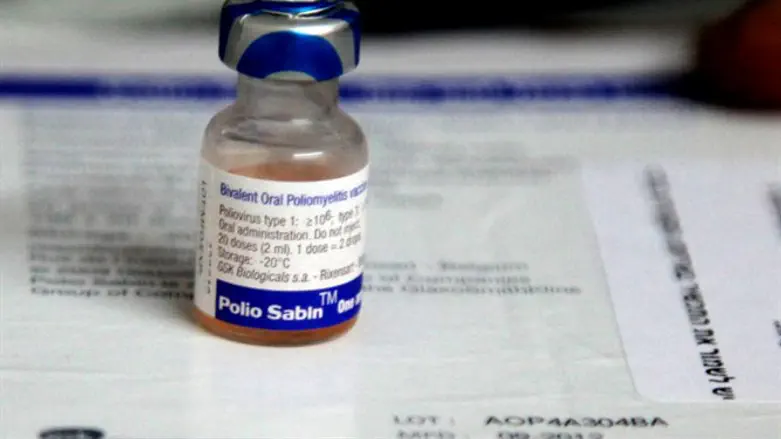
Seventeen Syrian children have fallen ill with polio since the beginning of May 2017, and according to the World Health Organization, the outbreak is "severe."
At the beginning of June 2017, the WHO reported two cases of polio in the ISIS-controlled Mayadin, in Syria's Deir ez-Zor Governorate. An additional 14 cases were later reported in thee same area, and one case was reported in the Raqqa Governorate.
This is the first polio outbreak in Syria since 2014.
Polio is an infectious disease which is especially dangerous for children ages five and under. One out of every 200 polio cases will cause paralysis, and of those paralyzed, 5-10% will die because their respiratory muscles cease working.
According to WHO spokesperson Tarik Jasarevic, the paralyzed children began showing signs of polio between March 3-23. However, only recently did lab tests confirm that the infected children are suffering from vaccine-derived "para" polio, caused by a mutation of the oral polio vaccine (OPV).
The OPV contains a live, but weakened, virus. Though the immunization can pass from one child to another, immunizing the recipients, sometimes mutations cause the virus to become virulent again. While the OPV does not infect immunized individuals, it can cause outbreaks in un- or under-immunized populations.
Immunized individuals are protected from both wild polio and vaccine-derived polio.
The mutations which cause vaccine-derived polio do not occur overnight; generally, the virus will have circulated (via contaminated water or food) in an un- or under-vaccinated population for at least twelve months. This kind of polio is considered more aggressive than the wild strain.
Jasarevic said, "We are very worried, because obviously if there is already one case of polio of a kid that is paralyzed it’s already an outbreak."
"We know for example that for one kid that is paralyzed there are almost 200 asymptomatic so it means that virus circulating, so it is very serious."
Residents of Mayadin are under-immunized. To stem the outbreak, the WHO plans to vaccinate 90,000 Mayadin children ages five and under, in addition to another 32,000 children in other areas of the Deir ez-Zor Governorate.